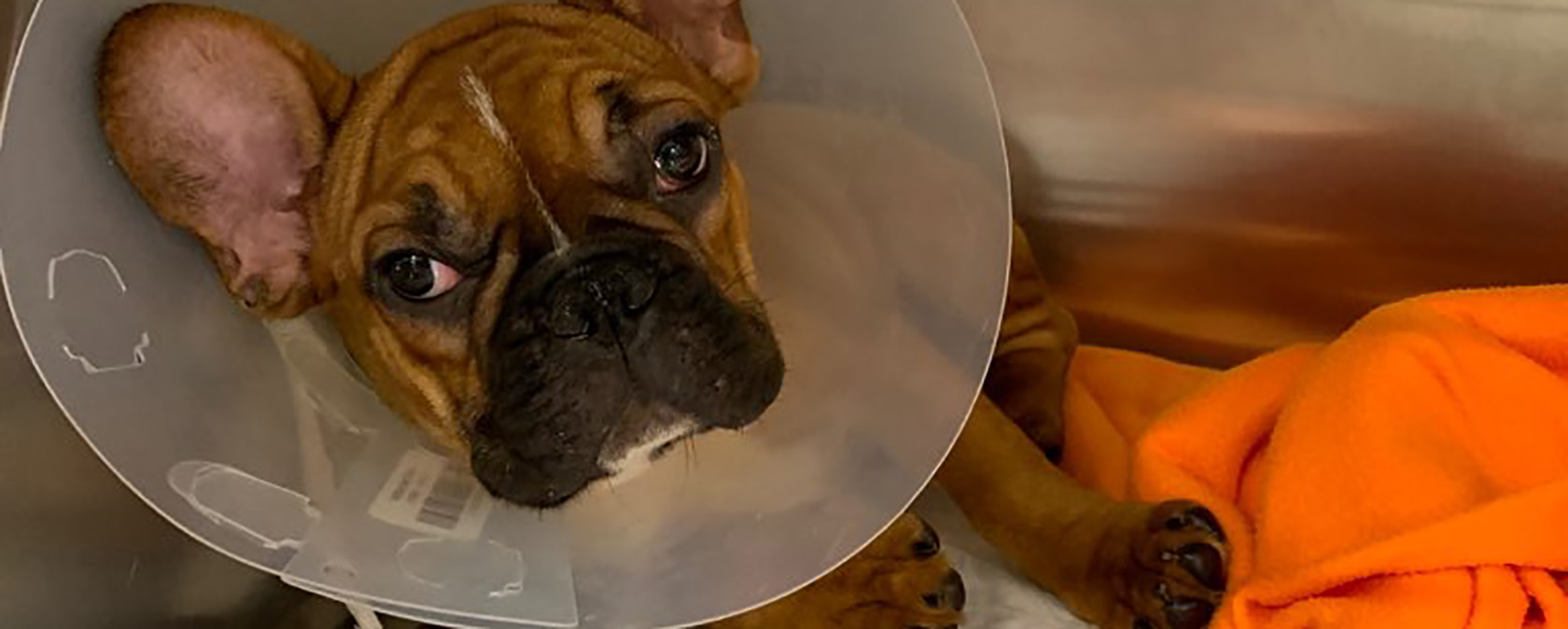By Sara Amundson and Kitty Block
It was a heartbreaking incident, by any measure. In August, authorities found more than a dozen dogs, mostly French Bulldogs, stranded for three days in their crates inside a warehouse at Chicago's O'Hare airport. They had no food and water and the crates, witnesses say, were caked in feces and urine. One dog had already died, another was seriously sick with parvovirus.
The pups had been illegally imported from Jordan into the United States by suspected overseas puppy mills to be sold as pets, in apparent violation of federal law. They were dumped into the warehouse because they did not have vaccination documents required by the Centers for Disease Control and Prevention for their release.
A tipster alerted the police and the local Chicago French Bulldog Rescue stepped in immediately to help. The rescue spent tens of thousands of dollars caring for the animals and treating them for a variety of illnesses they were suffering from. But yesterday, the CDC told the rescue that the pups will be returned to Jordan—to the same puppy dealers who were responsible for sending them illegally to the United States in the first place.
There are so many things that are wrong with this story. The dogs should never have been allowed to get on the plane because the import of live puppies under 6 months into the United States for resale is prohibited by a 2008 law we helped pass and a subsequent 2014 federal rule for implementation. But once the puppies were here, the airlines, the USDA and the CDC should have seized the dogs and provided appropriate veterinary care and required those who imported them to pay for it--as required by their own regulations. These are sentient living beings, babies at that, and not contraband that can be shoved into a warehouse and forgotten.
The Chicago French Bulldog Rescue is now appealing to the CDC to allow the puppies to remain with them, especially one puppy who is suffering from hydrocephalus, a condition that causes fluid to accumulate in the brain, and might not survive the flight back to Jordan. We will be supporting them in this fight all the way. “It breaks my heart to send these puppies back to an unknown fate. Who will pick them up from the airport? Where are they going? No one can tell us,” Mary Scheffke, the rescue’s founder and director, told us.
This case, and another one from Canada we reported in June, highlight the global scale of the puppy mill problem, and the ease and frequency with which millers move young animals between nations with little regard for their health or wellbeing. In the Canadian incident, a Ukraine flight carrying approximately 500 puppies arrived at the Toronto airport with 38 dead dogs. Many more were reported as suffering from weakness, dehydration and vomiting. Humane Society International/Canada helped focus the spotlight on Canada’s puppy mill problem, and the pressure we helped create led to the Canadian government suspending imports of puppies from the Ukraine.
Animals in puppy mills anywhere in the world already suffer immensely; there is no justification for our government to add to their suffering by denying them basic care when lawbreakers thrust them into a bad situation. We urge the USDA and CDC to do all they can to enforce the law, including working with airlines to ensure that they do not transport underage puppies on planes bound for the United States. But when animals trapped in these illegal situations do end up here, the federal agencies, and the airlines, should seize the animals, provide appropriate veterinary care and quarantine them if necessary. The dogs should never be sent back to those who are responsible for their suffering in the first place.
Update (10/12/2020): The French bulldogs have been given a last-minute reprieve and will be staying in the country. The puppies will be quarantined and then put up for adoption by Chicago French Bulldog Rescue. We will continue to work with the CDC and USDA to discuss a more humane solution for similar puppy mill dogs who are illegally imported.
Kitty Block is President and CEO of the Humane Society of the United States.




